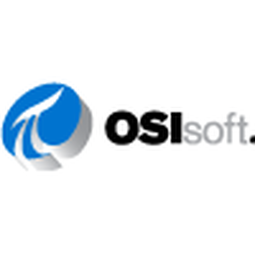
- 分析与建模 - 预测分析
- 分析与建模 - 实时分析
- 功能应用 - 企业资产管理系统 (EAM)
- 功能应用 - 远程监控系统
- 传感器 - 流量计
- 传感器 - 液位传感器
- 城市与自治市
- 商业运营
- 泄漏与洪水监测
每年,春雨和融雪涌入为卡尔加里市供水的河流和水库。结果,市中心的企业和居民面临着不可预测的洪水,可能造成数百万美元的损失。卡尔加里市求助于 PI System 以采用数据驱动的方法来预测和管理洪水。
弓河和肘河都流经卡尔加里的边界,为系统提供淡水。这些河流携带来自近 9,000 公里土地的径流、降雨和融雪,水被收集在卡尔加里市管理的两个主要水库中。为确保为其客户提供安全、稳定的供水,卡尔加里市必须密切关注这些河流和水库的水质和水量。这样做的最大挑战之一是该地区每年的洪水。每年 5 月至 6 月,融雪、径流和暴雨导致河流水位大幅上升。为洪水位做准备是公用事业公司年度计划的一部分,但准确预测洪水何时发生是另一回事。地下水位会迅速变化,公用事业公司必须在洪水风险与继续满足用户需求和保持水库水位和水质之间取得平衡。在洪水事件期间,公用事业公司面临通过其系统的水量激增。在水到达水库之前,必须对其进行处理,洪水造成的水量突然增加常常使处理厂不堪重负,从而导致质量问题。此外,卡尔加里市缺乏及时的信息,无法在洪水发生前减少水库水量。结果,当洪水到达市中心时,应急响应往往难以应对。由此造成的损失——包括住宅和商业保险索赔、水质问题、系统停机和监管罚款——可能总计数百万。为了减少洪水对其客户和业务的影响,卡尔加里市转向了 PI System。
卡尔加里市一直在使用 PI System 收集有关其整个水处理和分配网络的状态和性能的实时数据,包括五个水和废水处理设施以及 200 多个分布式现场设备。卡尔加里市决定扩展其 PI System 以监控为市政供水系统供水的流域,并捕获河流水位、水库水位、流速和降雨量等信息。这些新数据使卡尔加里市能够实时监测流域并更好地预测潜在的洪水。今天,卡尔加里市的运营、维护、工程、规划、 • 季节性洪水经常发生,但无法预测。 • 第一响应者无法直接访问数据,从而减慢响应时间并增加成本。 • 季节性洪水通常会导致水质问题,并可能造成数百万美元的损失。 • PI System 收集上游河流流量和降雨数据。 • 急救人员可以直接访问 PI System 并监控河流水位。 • PI System 能够提供更好的水质报告。 • 卡尔加里可以更好地预测季节性水涌并采取预防措施来防止洪水和潜在损害。 • 第一响应者可以提前收到潜在洪水的通知,并且可以快速响应。 • 水质得到改善,监管机构更了解情况。企业用户可以使用他们的 PI System 分析和可视化工具准确地查看系统中从河流到水库到管道到下水道的水量。

Case Study missing?
Start adding your own!
Register with your work email and create a new case study profile for your business.
相关案例.

.png)







